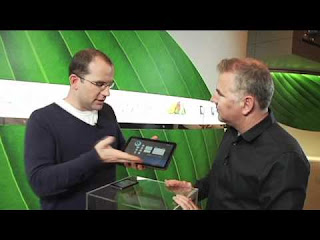Android application development has been all the hype since the
announcement of the platform, and it has made several claims regarding
its open source features. Because of this, many standard smartphone
users made the jump to Android hoping that they would experience open
source in the same way that they had on their Linux machines. The
question is whether or not the open source platform has lived up to its
promises.
What is the actual definition of open source? In the world of software development, it is when software is distributed with a license that gives users the freedom to modify the code, reuse it for their purposes and redistribute it. The principles of open source software development is based on a community approach where groups of people collaborate in the development process, often on a voluntary basis. Often times, the developers are also the end users. The work they do not only benefits them in the long run, but also the community as a whole.
The Android platform is open source with regards to the fact that a user will be able to download the code and do what they want with it. They can make modifications and they can upload these modifications to their phones. However, there is no transparency with regards to the operating system's development going on behind the scene. There also lacks a development community where individual programmers are contributing to the project on a regular basis. Developers are left to take whatever Google provides with each major software release.
Although Google is doing the bare minimum to release Android as open source, they are not the only barriers to a truly open source development environment. The phone carriers have maintained tight control over their devices and release them with the Android operating system locked down. Their reasoning behind this is that they believe a truly open source development environment would pose a severe threat to the existing phone services and network. The theory is that a skilled programmer could potentially hijack part of or all of a network. Is this possible? It is certainly a matter of debate and many people believe that these theories are unfounded.
Android application development is not completely restricted to Google's parameters. Many have found root hacks that allow for more access to the software, and Google does not keep users on as short a leash as Apple keeps its iOS developers. With that being the case, many have found that working with Android still provides more freedom than developing for the iPhone.
While Android is technically open source, Google still has a large foothold in the independent development process. However, this has not hindered the growth of the Android smartphone and it's popularity among consumers. Open or not, the demand for Android application development will continue to rise and flourish under the existing development environment.
What is the actual definition of open source? In the world of software development, it is when software is distributed with a license that gives users the freedom to modify the code, reuse it for their purposes and redistribute it. The principles of open source software development is based on a community approach where groups of people collaborate in the development process, often on a voluntary basis. Often times, the developers are also the end users. The work they do not only benefits them in the long run, but also the community as a whole.
The Android platform is open source with regards to the fact that a user will be able to download the code and do what they want with it. They can make modifications and they can upload these modifications to their phones. However, there is no transparency with regards to the operating system's development going on behind the scene. There also lacks a development community where individual programmers are contributing to the project on a regular basis. Developers are left to take whatever Google provides with each major software release.
Although Google is doing the bare minimum to release Android as open source, they are not the only barriers to a truly open source development environment. The phone carriers have maintained tight control over their devices and release them with the Android operating system locked down. Their reasoning behind this is that they believe a truly open source development environment would pose a severe threat to the existing phone services and network. The theory is that a skilled programmer could potentially hijack part of or all of a network. Is this possible? It is certainly a matter of debate and many people believe that these theories are unfounded.
Android application development is not completely restricted to Google's parameters. Many have found root hacks that allow for more access to the software, and Google does not keep users on as short a leash as Apple keeps its iOS developers. With that being the case, many have found that working with Android still provides more freedom than developing for the iPhone.
While Android is technically open source, Google still has a large foothold in the independent development process. However, this has not hindered the growth of the Android smartphone and it's popularity among consumers. Open or not, the demand for Android application development will continue to rise and flourish under the existing development environment.
For more information about Android application development, visit Magenic Technologies
who have been providing innovative custom software development to meet
unique business challenges for some of the most recognized companies and
organizations in the nation.




